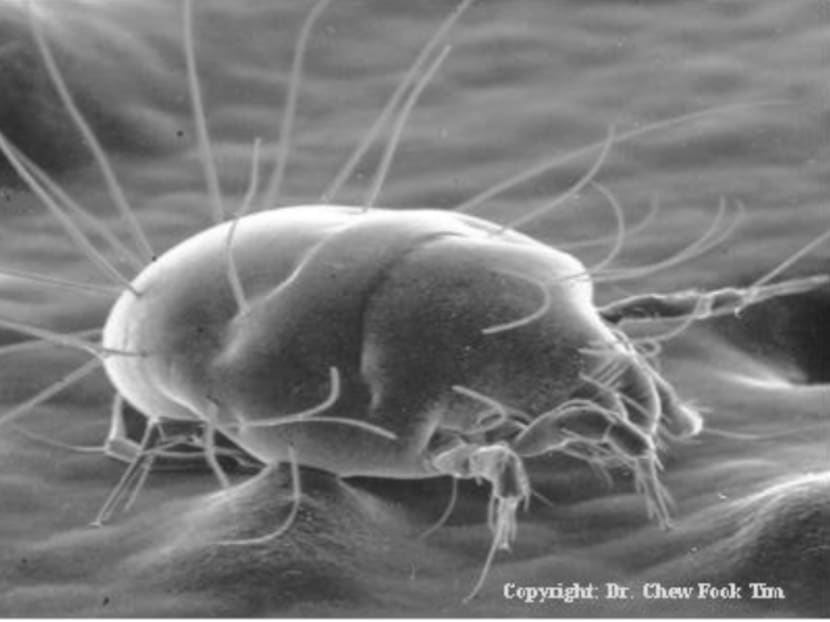Dust mites the culprit behind allergies in S’pore: Study
SINGAPORE — Scientists have pin-pointed house dust mites as the culprit behind the large number of runny noses in Singapore.
SINGAPORE — Scientists have pin-pointed house dust mites as the culprit behind the large number of runny noses in Singapore.
A study conducted by scientists and doctors from A*STAR’s Singapore Immunology Network (SIgN) and the National University of Singapore (NUS) found that a large majority adults in Singapore are allergic to the dust mites.
Almost 15 per cent of Singapore’s adult population are affected by asthma and nearly 40 per cent are susceptible to allergic rhinitis, an inflammation of the upper respiratory tract that causes sneezing, watery eyes and runny noses.
The study, published in the latest issue of the scientific journal Allergy, tested the allergic responses of 8,000 people to 12 common respiratory allergens and found that approximately 80 per cent of them showed allergic reactions to house dust mites, and only minor reactivity to the other allergens.
Furthermore, the study further found that participants who originate from non-tropical countries had low sensitivity to house dust mites when they first arrived in Singapore, but these rates increased as they spent more time here. This increase was accompanied by an increase in airway allergies.
Migrants from countries that have similar tropical climate, such as Malaysia, showed comparable allergy rates as Singaporeans.
The scientists hope that these results will lead to the development of not just anti-allergy treatments that are more effective for tropical countries, but also environmental interventions to reduce the levels of house dust mites people are exposed to.
“Rather than relying on statistics from other countries, we have managed to pin-point the cause of airway allergies in Singapore,” said Prof Olaf Rotzschke, the lead investigator of the study at SIgN. “We believe that results from this study will help to understand the differences of allergies in the tropics and other parts of the world.”
Research Associate Professor Wang De Yun, from the department of Otolaryngology at the NUS Yong Loo Lin School of Medicine, said, “Given the increasing prevalence of airway allergic diseases in Singapore and Southeast Asian countries, this study is truly a breakthrough in understanding why there are such high number of allergic rhinitis patients in Singapore. Knowing the cause is the first step in developing more effective interventions to improve the quality of life for asthma and allergic rhinitis sufferers.”









